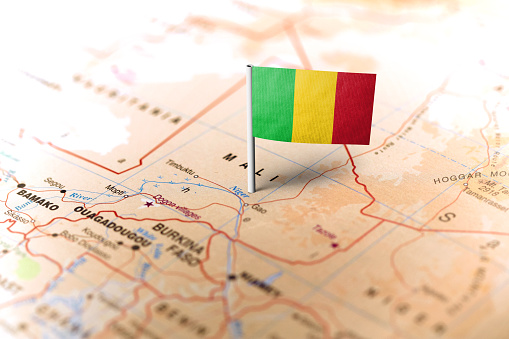Bamako – Mali’s ruling junta said on Wednesday that it was in talks with the West African bloc Ecowas, as well as other organisations, to find a “compromise” on restoring civilian rule.
The Economic Community of West African States (Ecowas) imposed a trade embargo and closed borders with Mali in January, in a move backed by France, the United States and the European Union.
The measures followed a proposal from Mali’s ruling junta to stay in power for up to five years before staging elections – despite an earlier commitment to hold a vote on February 27.
On Wednesday, Mali’s territorial administration ministry stated that it had formed a “dialogue group” with Ecowas, the African Union and the United Nations to discuss the dispute.
ALSO READ | West Africa bloc says Mali rulers seek to stay in power for years
The group, which also includes the Mauritanian, Senegalese and Ghanaian governments, met for the first time on January 31.
The group aims to “reconcile positions and seek compromise”, the Malian statement said.
Mali has been increasingly at loggerheads with its international partners since the military ousted election president Ibrahim Boubacar Keita and seized power in the Sahel state in 2020.
The coup followed widespread protests over Keita’s inability to stem the bloodshed from a jihadist insurgency, and the junta has appeared to enjoy popular support in Mali, with the opposition struggling to find a voice.
However a coalition of parties from Keita’s former majority as well as civil society groups said Wednesday that they would stop recognising the ruling authorities from March 25.
ALSO READ | Sanctions put squeeze on Mali’s lucrative cotton sector
Calling itself the “framework of parties and groupings for a successful transition”, the coalition demanded a new government “with a mission led by a neutral prime minister”, it said in a statement.
The junta has pledged to restore civilian rule, but it argues that rampant insecurity prevents it from holding swift elections.
Mali has been struggling to contain a jihadist insurgency that first emerged in 2012 and has since spread to neighbouring Burkina Faso and Niger.
The country’s military rulers have remained defiant in the face of the economic sanctions but have also said they remain open to dialogue.
Follow African Insider on Facebook, Twitter and Instagram
Source: AFP
Picture: Getty Images
For more African news, visit Africaninsider.com


